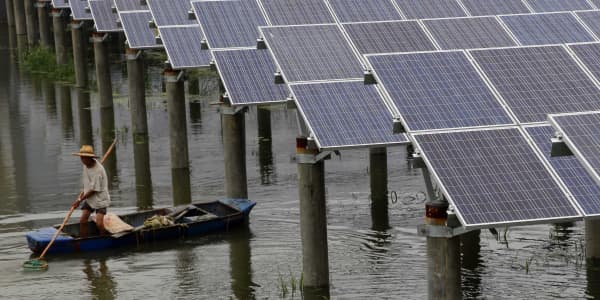Singapore's intensive use of social media to broadcast the Southeast Asian (SEA) Games around the region last month begs the question: does it even matter anymore where sports events are held?
"The day where sports events are measured by the limited seats in the stadium is a by-gone era. A good sporting event is measured by fans across social media," Brenda Chuah, associate director at Starcom MediaVest, the ad agency officially handling the SEA Games' social media, said in emailed comments.
The SEA Games managed 44 million Youtube views, 575,000 Facebook fans -- more than the 2014 Asian Games and Commonwealth Games combined -- and 64,000 Twitter followers, according to figures from Starcom MediaVest. The games also saw a good response from an app that allowed users to choose which camera angle to use while watching events -- a departure from traditional TV's use of just one or two angles at a time, Chuah noted.
Read More Why we can't measure disruptive technology
To be sure, the SEA Games is relatively small: Around 4,370 athletes competed in 36 sports, compared with more than 10,000 athletes at the 2012 Summer Olympics; the 2014 Sochi Winter Olympics saw the Olympics add around 2 million new Facebook fans to a total of 7.7 million. However, part of the difference in numbers could be attributed to the fact that much of Southeast Asia has limited Internet access.
So with this kind of growth across media audiences -- both social and traditional -- and a limited physical audience, does it still matter where the event is held?
Deciding locations can be a fraught business. In May, officials at FIFA, soccer's global governing body, were arrested on charges related to alleged bribes and kickbacks to influence the choice of World Cup host countries. It's not the first time something like this has happened: In 1998, allegations emerged that International Olympic Committee members may have accepted bribes to give the winter games to Salt Lake City.
Even without alleged criminal activity, continually changing events' locations spurs a lot of criticism, because of the expense. The Sochi Winter Olympics became the most expensive Olympics ever, costing around $51 billion, some of it on infrastructure that may never be used again. Brazil also faced a lot of grumbling over its decision to spend over $13 billion to build game infrastructure for the World Cup in 2014, much of it unlikely to be reused, even as the country faces more pressing needs, including addressing widespread poverty.
Read More Can you measure GDP if ownership is over?
"It costs you money at the end of the day. There's no financial upside" to hosting these sports events, noted James Dorsey, a senior fellow at the S. Rajaratnam School of International Studies and an avid blogger of soccer news. But he still thinks that even if "attendance" is no longer entirely physical, countries will still vie to become hosts.
"You may lose money in terms of dollars and cents on what you invested, but you may have gained in terms of reputation, opportunity and image, which is not calculated in dollars and cents. In some countries -- Russia, for example -- it's about more than image and projection. It's about defense and security," Dorsey said.
"Diplomacy in the broadest sense of the word has changed. It's no longer exclusively government official to government official," he said. "In terms of business opportunities, soft powers and subtle power, those are the reasons you as a country host an event like this. All of those reasons remain, irrespective of whether part of your audience attends physically or not."
—By CNBC.Com's Leslie Shaffer; Follow her on Twitter @LeslieShaffer1





